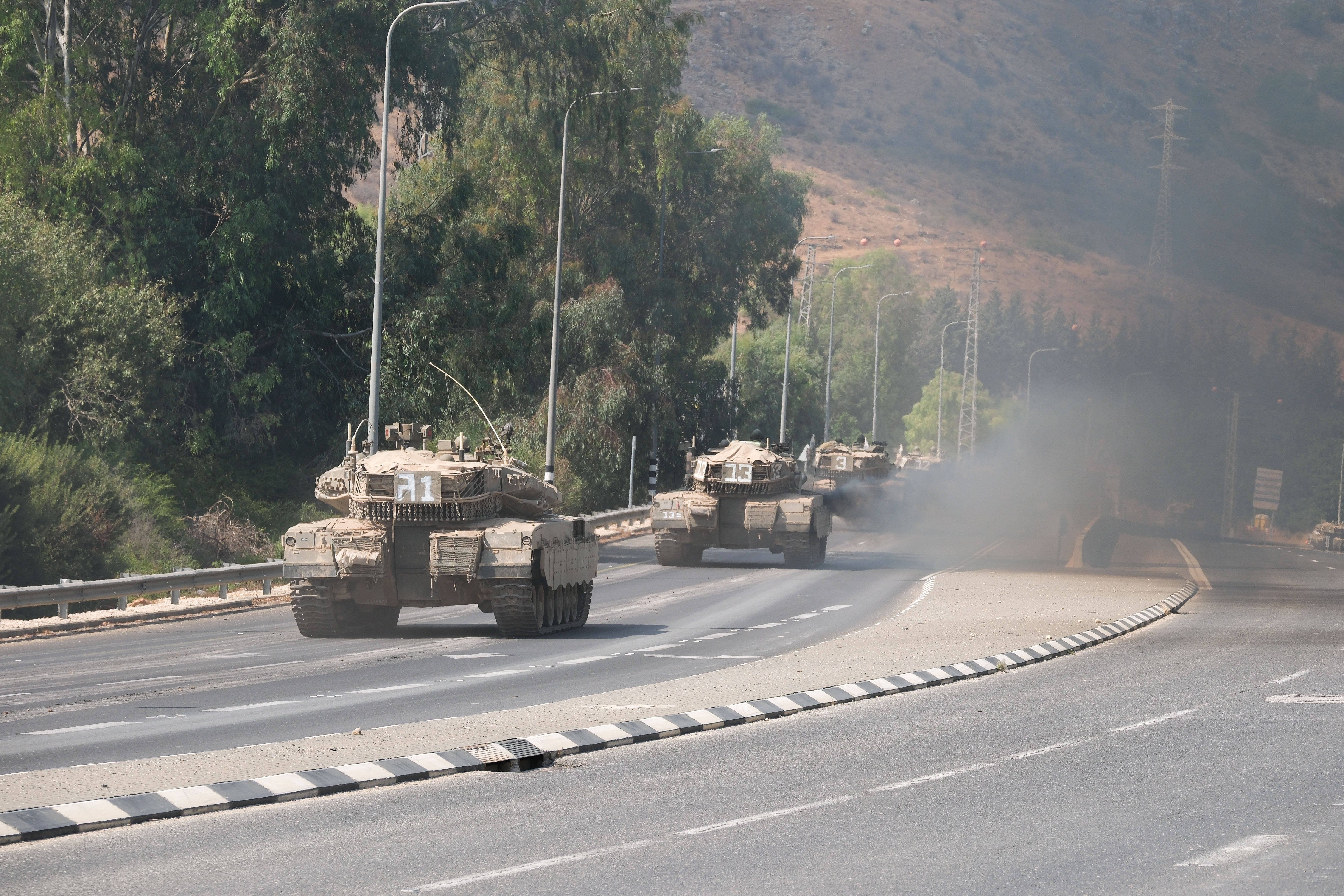While the brunt of Israel’s reaction to Hamas’s attacks has focused on Gaza, Israeli troops also exchanged fire with militants across the northern border in Lebanon, raising the specter of regional escalation.
Hezbollah, the Iranian-backed Shiite militant group that controls much of southern Lebanon and is among the most influential political parties in the country, sent some rockets over the border into Israel on Sunday. This was widely seen as a symbolic act of support for Hamas, but little more.
On Monday, however, Palestinian Islamic Jihad, another Iranian-backed terrorist group, claimed responsibility for an incursion into Israeli territory along the Lebanon border, which killed an Israeli officer. An Israeli gunship killed two PIJ fighters, and Hezbollah claimed at least three of its militants were killed in retaliatory Israeli strikes. They then launched more strikes of their own.
Compared to Hamas, Hezbollah has long been considered the more powerfully equipped group – its massive arsenal is believed to include precision-guided missiles, which have been used to deter Israeli invasion since the 2006 war. Its leader, Hassan Nasrallah, claims he can field 100,000 fighters.
But any attempt by Hezbollah to open a second front in the war would lack the element of surprise that Hamas used to its advantage. The northern Israeli border is heavily fortified, the Israeli Defense Forces have conducted multiple exercises to train for war with Hezbollah, and Israeli reservists are being called up by the tens of thousands. Fighting would be bitter and costly, and it would likely fail to influence Israel’s operation in Gaza while jeopardizing Hezbollah’s position within Lebanon’s delicate power balance.
Hezbollah is the most powerful Shiite group in Lebanon. Spending its strength fighting Israel opens it to challenges from rivals, including Sunni, Maronite Christians, and Druze armed groups. Lebanon is also in the midst of a vicious economic collapse, which has left many struggling to feed their families. Going to war with Israel is likely to undermine their already waning credibility.
The key question: Will Iran push for more violence? Senior officials from both Hamas and Hezbollah told the Wall Street Journal that Tehran had helped plan the attacks in southern Israel — but Iran denies this, and Washington says there’s no evidence of Iranian involvement, though it holds Tehran “complicit.”
Israeli Prime Minister Benjamin Netanyahu notably did not mention Iran in his nationwide broadcast on Monday.
Eurasia Group Iran analyst Gregory Brew says Tehran is celebrating Hamas’s attacks and benefits from the chaos and the disrupted thaw in Israeli-Saudi relations. But Iran isn’t eager to escalate tensions in a way that invites blowback.
“Iran benefits from Israel being focused on domestic problems and immediate security problems because this reduces the likelihood of an Israeli attack against Iran,” he said.
Instead, he says, Tehran is likely to do its utmost to generate goodwill toward the Palestinian cause, and against Israel, in the face of Israel’s bombardment of Gaza.
“Israel is going to go into Gaza, and it’s going to go very, very hard. The violence is going to escalate, and Iran is going to make the most of that to try to rally global public opinion against Israel,” says Brew.
But if Hezbollah enters the fray in a meaningful way, it could lead to unpredictable — but certainly harsh — retribution from Israel, especially if Tehran is directly implicated. The Lebanon-based group is “the key source of escalatory risk,” says Brew, and demands careful observation.
“There's a documented history of proxies like Hamas and Hezbollah trying to drag their more powerful benefactors into conflicts,” he says. But that doesn’t mean these groups will succeed in doing so.
“I would be surprised if Hamas is successful in dragging Iran into a conflict that Iran is happy to benefit from but likely doesn't want to become directly involved in.”
